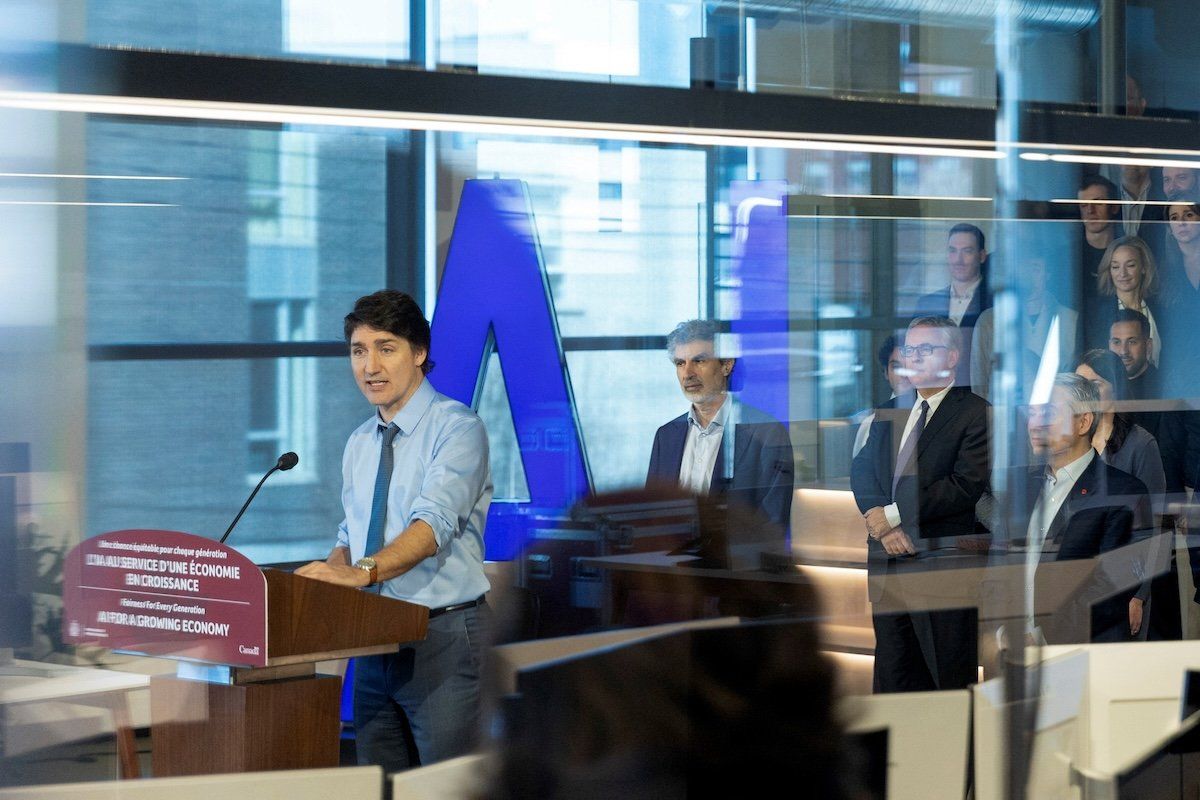Canada’s Prime Minister Justin Trudeau visits the offices of artificial intelligence tech company ScaleAI in Montreal, Quebec, Canada, on April 7, 2024.
Most of the money will be for investments in computing infrastructure, but $50 million is to establish a Canadian AI Safety Institute to protect against “advanced or nefarious AI systems.” Trudeau predicted the money would help spur investment in the industry — an old-fashioned industrial policy aimed at keeping Canada from falling behind in the international race to develop the technology — but the government will also spend $200 million encouraging sectors to adopt technologies.
The recently announced US policy will require federal agencies to “assess, test, and monitor” the impact of AI, “mitigate the risks of algorithmic discrimination,” and provide “transparency into how the government uses AI.”
Unlike the United States, Canada is moving ahead with legislation that will update privacy laws and require businesses to ensure the “safety and fairness of high-impact AI systems.”
Both governments are trying to develop the technology while taking steps to make sure that potential dangers are understood and prevented. AI pioneers and researchers are warning that AI poses a wide variety of little-understood risks, ranging from impoverishing musicians to human extinction.
